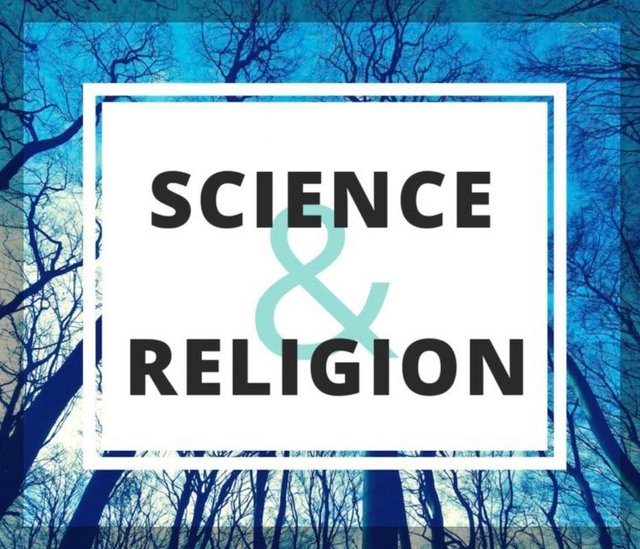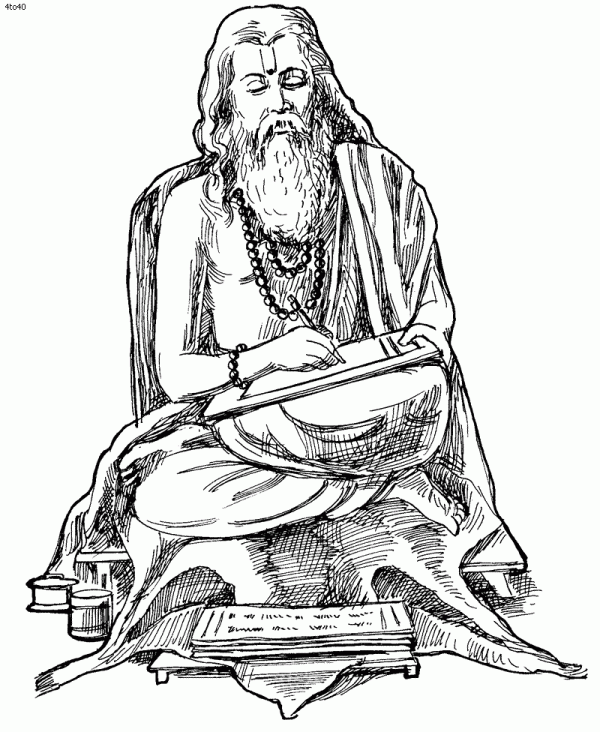Is religion as acceptable as science?

Believe me, there was a time when I considered religion as a diabolic extravagance of public time and public wealth. In spite of my beliefs, I used to frequently visit mandir1 with my mother during school days. The satisfaction of bringing about the smile on her face has been the sole reason for these visits. So, naturally, when I went to college, I stopped visiting mandirs altogether. During that time, I could have convinced you that the function of religion is merely to provide hope to people who operate from the point of fear. But, that all changed, and the reason for such a drastic change was my willingness to listen to views that countered mine at that time. Therefore, I urge you all to show me the same willingness and read this article with an open mind, even if you consider yourself an atheist, especially if you consider yourself a true atheist. I will try to answer the question which most of us have asked ourselves during the time of our life when we were taught the ways of religion buy our mothers and the ways of science by our schools. Is religion as acceptable as science, or is at least scientific, or that it has any function at all with life as such.
Science and religion have something very similar and common; both of them have been striving sincerely to serve the citizens of the state with the maximum quota of happiness. As the men in numbers grew, so do their demands, and the state started its pilgrimage with religion as its spouse.2 It is undeniable fact that during their prime, all religions of the world have served their own immediate generation. However, the societies developed into the new patterns and more complicated scheme of things with time. The same old religion was not able to serve these over-developed societies; and somewhere around the Middle Ages, science joined the company with the same sacred motive of serving the state. The days of monopoly for the religion was over, and now the time has come when it has a worthy competitor. But the old religion, disgusted, jealous and almost exasperated, stayed behind, and science kept pace with the moving world.
Today, we have conquered the space and time (metaphorically), and have even travelled beyond the solar system (actually).3 Scientists and researchers all over the world have discovered means and methods to save the present generation from the clutches of the wild and irresistible powers of nature. Yet, for all our sweat and toil, we have won only fresh fields of carping sorrows in the inner world.2 No matter what we attain, we ultimately feel a sense of emptiness inside us. To fill this void, we are continuously running towards various materialistic pleasures. These pleasures, being finite, lacks the capability to endow us with infinite happiness. In the end, some of us ask ourselves the path by which we can transcend the inner turmoil, and reach the blissful state.

The methods to conquer the inner world and to attain bliss have been scientifically discovered and documented by the Great Rishis in the Upanishads. Just as to the scientists, the world of objects provided the field of enquiry, so also, to the Rishis, life as such presented itself as their theme for investigation and study.2
Supposing a scientist feels a sentimental attachment to the sample of common salt in his test tube; surely, he cannot thereafter do much of an investigation and discover the composition of sodium chloride. Similarly, if we are to maintain a sentimental attachment to life as such, it would generate a host of false values in us. It would distort and dim our vision of the whole.
The Great Rishis, as true investigators of life, developed in themselves a superhuman detachment from life, and by their intense and thorough research declared the truth about life. Some of the insights are as follows:
- Life is a series of continuous and unbroken experiences.
- If the total life be the sum total of all experiences, then a successful life is that in which the individual can have a larger number of successful and happy experiences.
- A life of failure is that in which the majority of experiences are failures.
- No experience in life is possible without the fundamental 3 factors, namely, the experiencer, the experienced, and a set relationship between the two called experiencing. Unless these 3 factors function in the same given field of time and space no experience can come to pass.
- An individual is a sum total of the physical, the mental, the intellectual, and the spiritual personalities.
- The world outside is but a projection of the active mind.
We, the scientists of the modern day, are in our own way the investigators of the ultimate truth. But our field of enquiry is the world of objects or the 'experienced'. On the other hand, the Great Rishis investigated the ultimate Truth by analyzing the 'experiencer', or the world of subjects. Both are scientists, the only distinction between them is their field of enquiry and in the methods of their investigation. Therefore, I conclude that religion is as scientfic as science. Unintelligent and blind followers may have made the best of philosophies serve as lifeless prescriptions for ritualism. But, if we can find the true source of knowledge, the Upanishads, and can implement the truths declared by the Rishis in our current life, we can see the strength of religion and its vital dynamism.
1 मन: inner-self (mind), दिर: dwelling place. So, mandir means a place where mind dwells. I refrain from using the word temple, because of it's ability to describe the true function of mandir.
2 Swami Chinmayananda, Isavasya Upanishad: God in and as everything
3 https://voyager.jpl.nasa.gov/mission/status/
4 https://www.speakingtree.in/blog/vyasablack-genius-of-india
ABOUT ME:
To know about the author Tanul Gupta (@haxins), please go through the introductory post
Tanul bhai u just made me remind of 'wings of fire by DR. kalam'...he has also explained the interrelationship between science and religion as beautifully as u have and i fully agree with you on it...science and religion just go on parallel paths till the religion is not being practiced arbitrarily or without a sense of reasoning...actually Iam not a much of a believe in dieties so i never pay visit to any king of temple or religious places. If i ever go to these places then the reason is only the historical perspective or the beauty of architectury and sculptures in those places...one should just has his divotion and service to humankind and mother nature...
@devsingh Thanks bhai!
Congratulations @haxins! You have completed some achievement on Steemit and have been rewarded with new badge(s) :
Click on the badge to view your Board of Honor.
If you no longer want to receive notifications, reply to this comment with the word
STOPTo support your work, I also upvoted your post!
Do not miss the last post from @steemitboard!
Participate in the SteemitBoard World Cup Contest!
Collect World Cup badges and win free SBD
Support the Gold Sponsors of the contest: @good-karma and @lukestokes
i wanted such articles from you man, i might post some like this myself, huge admirer of ancient science of india!
@jatinkkalra Thanks!
I think both should be respected,They both have their points which have been proven right at certain points!
in public discussions of evolution and creationism
we are sometimes told by creationists of religion
alike that we must chose between belief in creation
and acceptance of the theory of evolution between
science and religion
Great Article, But I think Science is all about R&D and Facts whereas Religion is About beliefs.
@haxins I think you have a great content and great potential to move forward.
but on the is missing from your side is regular posting. change your priority bro.
very impressive article @haxins
Nice article . I know only one religion humanity.
@sati13 It's a cliche. Make something new.
@haxins There is a widespread assumption that science and religion are incompatible with each other; it may be acceptable for a scientist to practise religion, but--it is believed--this should be seen as despite, not because of his or her scientific profession and knowledge. Such an assumption is wrong. Examination of conflicts between science and religion (such as those about evolution) show that they always arise through misinterpretation or tenacious presuppositions!!!
@rhn268 Thanks! This widespread assumption started from the west where scientists were killed by the church just for stating the fact that the earth is round or it revolves around Sun. These are not true for Dharmic religions. Yet, we all are educated in western philosophy and basically repeat the words of Europeans. We should stop for a while and think why religion and science could not co-exist. Everyone should read Bhagvad Gita and then comment regarding the authority of its knowledge.
its really true...srimad bhagvatgita has really changed the life of not only commoners but top and real life heroes as well...